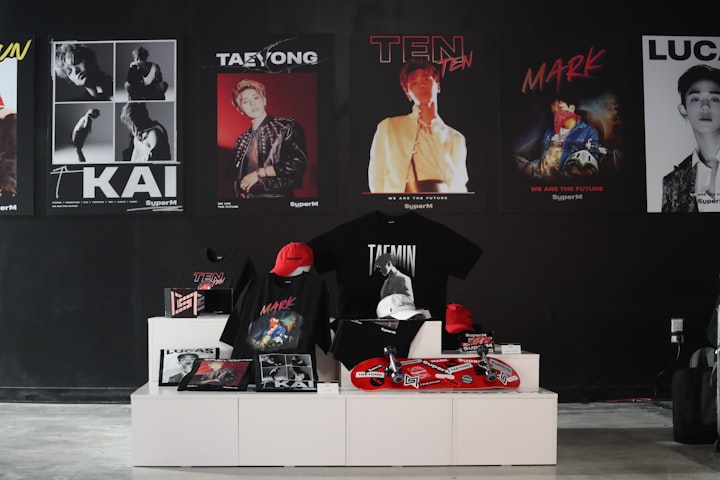
I’m a random nobody on the Internet, but I am also a music enthusiast. As someone who listens to Korean pop music, I’ve read articles in which members of the media discuss the “phenomena,” and, well - it’s a bit weird.
I’m in my mid-30s, so I’m “old” and “a hag,” according to most children on Twitter, and I was fully involved in the late 90s/early 00s boyband craze. I remember the weird, dismissive way media discussed that whole era then, and I see much of the same talk going on nowadays with K-pop. It mostly boils down to the fact that, whether intentional or not, there is a tendency to be dismissive of anything enjoyed mainly by younger women and girls.
Given that I’m a veteran of pop music fandoms, I was not surprised to see the same attitudes reemerge. However, with K-pop, there seems to be a rush to “uncover the dark side” and take it down a peg. I could be wrong since I was a tween, but I don’t remember a near-pathological need for every article to point out how the genre wasn’t as fun and perfect as it appeared. Rather than questioning the people behind these manufactured groups, people like Lou Pearlman were lauded as shrewd businessmen with an eye for talent, and few went any further than that - although they really, really should have. The main concern back then was, “These ‘artists’ don’t write their music! They’re manufactured!”
Those same points get brought up for K-pop. It is heavily manufactured, but this isn’t a secret and is part of the experience. Many songs are written for or chosen by K-pop artists, but numerous idols write their music or, at the very least, have a hand in writing. Again, none of this is hidden or kept secret. It’s part of the appeal.
Where things get weird is the dedication to mentioning every bad thing about the K-pop industry as though it doesn’t happen in Western music. From death by suicide to cutthroat training, unfair contracts, and obsessive fandoms, none of the downsides are unique to K-pop or the music industry. Yet these are all brought up like a “gotcha” whenever K-pop receives positive recognition.
Why the rush to take K-pop down a peg? One obvious and not inaccurate answer is xenophobia and/or fetishization of East Asian cultures in particular. Especially in America, we are quick to dismiss the achievements or superiority of any culture other than ours but grant a bit more leeway to Eastern Asian achievements due to the idea of the “model minority.” This idea is still highly patronizing, reducing these countries only to the aspects pleasing to Western audiences and dismissing the rich cultures and history found within. Even through compliments, journalists love ensuring their audience doesn’t forget that these countries aren’t perfect.
As mentioned, anything with women or girls as the primary audience comes under more scrutiny than content that doesn’t. Even other women will find ways to demean these artists or franchises to distance themselves from negative connotations. Despite plenty of male K-pop fans, especially of girl groups, nearly every article about K-pop features a picture of screaming female fans. It reinforces the idea that only women and girls consume it, and it’s easier to dismiss.
However, the overarching problem is beyond K-pop, music, and journalism, and instead is a deeper issue: We can’t let anyone simply enjoy anything anymore. Social media has, unfortunately, harmed how we even consume art. There’s a rush to do a deep dive into the life or history of any artist and find any negative trait we can to dredge to the surface. Those negative aspects are then used to argue against anyone enjoying a project. The desire to ruin something you don’t like for someone who does or might like it in the future is just weird. There’s no benefit to it other than misplaced smugness that you’re not one of “those people.”
How do we fix it? As I said, I’m a nobody on the Internet. However, we can all step back and try not to focus on negativity. It may drive more engagement, clicks, and (unfortunately) more profit, but the long-term damage is too expensive.
Regarding K-pop and how we discuss it, we can start by not being so dismissive of it solely because it’s “foreign.” Sure, it may be from another country and mainly in a language most of us don’t speak fluently, but it’s very obviously inspired by Western pop music. It’s not that different from the numerous pop sensations we’ve had throughout our history, from The Beatles to The Supremes, to The Jackson 5 to TLC, to New Kids on the Block to Destiny’s Child, to Backstreet Boys to the Spice Girls, to NSYNC to Little Mix. It’s easily digestible music that’s fun. No high horse is needed.
About the Creator
Tina H
https://www.polywork.com/tina_herranen






Comments
There are no comments for this story
Be the first to respond and start the conversation.